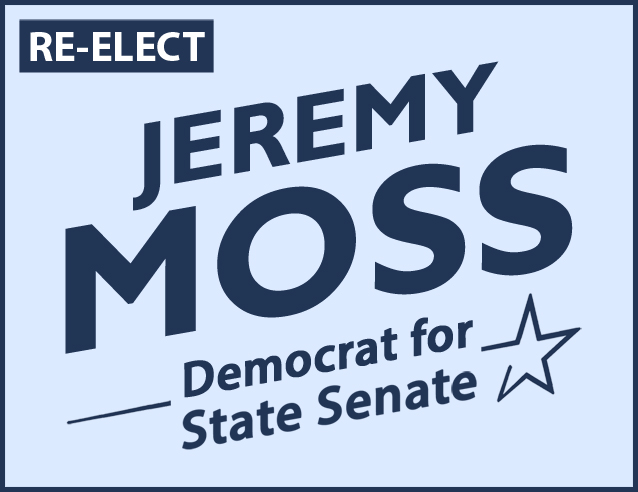Southfield can now be added to the list where people have legal protection against discrimination based on their sexual orientation or gender expression. City Council voted unanimously to amend their human rights ordinance on Monday, nearly a year after it was first introduced by Councilperson Jeremy Moss who now serves as State Representative and then-Mayor Brenda Lawrence, who now serves in Congress.
“This is going to make Southfield economically competitive, welcoming of those who want inclusive communities, diverse communities. And it’s the right thing to do. I spoke before Council earlier in the meeting and I said every time we expand ‘we the people’ we’re better off for it. And I am excited to be a Southfielder tonight,” Moss said.
At least 34 other cities have inclusive ordinances, which are seen not only as providing protections, but as a political statement towards State legislators because Michigan does not include LGBTQ people in the State’s Civil Rights laws. Detroit, Ferndale, Pleasant Ridge, Royal Oak, and Sterling Heights are among those in the area that have passed similar ordinances. (See Unity Michigan’s website for a complete list: http://www.unitymichigan.org/cities-with-ordinances/).
Several people spoke in favor of the ordinance, and a variety of perspectives were presented. Jay Kaplan, staff attorney for the ACLU LGBT Project spoke about the practical applications of the ordinance and the history of why such ordinances are important for cities. Cindy Clardy talked about the growing number of older adults seeking safe assisted living and medical care, and how some seniors feel they need to go back into the closet to be treated fairly. And Julia Music, Chairperson of Ferndale Pride, said she’d seen the welcoming nature of Southfield first hand and wanted the same protections for people in Southfield as people in her hometown of Ferndale.
One man questioned why the ordinance was necessary, and stated that Moss needed to learn how to compromise. He also said that he did not understand why the ordinance was necessary because he did not know of any cases of discrimination.
Faith Robinson, Chair of the Jewish Gay Network of Michigan, spoke about her experience. “Southfield has been good to us, but my partner of 35 years and I have been egged, our mailbox was blown up, and six of our eight tires for two vehicles were stabbed. Now I can’t say it is sidebar01sponsorbecause we are lesbians, but my fear is it was… Surely there are things happening that’s our under-reported,” she said.
Strong arguments also came from Southfield’s black community, with several people speaking about their own experiences being discriminated against. Barbara Talley, who had been Southfield’s first black City Councilperson, addressed the current Council, stating “I don’t know if any of you on city council have ever been discriminated against. But I have. And so I’m coming from a different point of view. My family in Detroit, in the 1950s, bought a house on the west side of Detroit. People on the street signed a petition to get us off chazzano game adthe street. And of course that didn’t work. And ironically the leader of that petition was of Japanese origin, of a nation that we had just ended to wear with eight years prior.
“In the late 60s in Hacienda Heights we were denied the house of our dreams and had to sue under the new fair housing law in 1968. We were told by the owner the blacks would destroy the neighborhood. Can you imagine the humiliation and embarrassment that we experienced all because of the color of our skin?
“When I moved to Southfield in 1971 I was expecting the same thing. But there was very little of that. However, on that City Council, I used to sit there before any of you sat there. And we worked very very hard for inclusion and diversity in the city. I want to remind each of you, of Candlewickshop_May2014the oath that you took… You really should not be sitting on City Council if you think that your denial is valid.”
Barbara Seldon also spoke on approving the ordinance. “As an African-American, I know sometimes overt, and more often covert, forms of behavior by people who through ignorance can hurt. I learned long ago that you cannot make people love you, if they are ignorant you cannot educate them, then you have no other recourse but to provide the needed legislative protection.”
Some questioned the motives of City Council members for bringing up the ordinance so long after Moss introduced it. One man directly accused Acting Council President Sylvia Jordan of flip-flopping on the issue in light of future political aspirations. Jordan responded by saying “I worked at The Equal Employment Opportunity Commission as an investigator for over eight seed020_heather_coleman_vossyears in the 80s. And we fought for civil rights and stood up to discrimination…. I have members of my family in the gay community. I have members of my church in the gay community. And for me to not approve a human rights ordinance would not be the right thing to do because I totally agree with equal treatment for all. So I want to make that very clear.”
Councilperson Joan Seymour defended her yes vote as well. “When I was a teenager and they had to march in parades in Detroit to get attention, they had terrible things done to them,” she said. “I support this [ordinance] and I support these people. I’m proud of all of you who came out, and were brave, really to say who you are. There’s a lot of people that are very prejudiced.”
The addition to the ordinance was passed unanimously.
